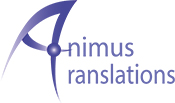Speaking your clients’ language: how to use translation to increase sales
Posted by Nyx Whyte - 28/10/2018

Why is translation important for sales?
If you want to increase sales, nothing is more effective than speaking to a customer in their own language. Translation can help you to reach more customers and makes the process easier and more enjoyable for those you reach. It also makes your message much more effective, as you can tailor your advertising to individual markets. This avoids culturally inappropriate content and ensures your content makes the impact you need.
English can be a very useful tool for reaching a wide range of customers, as many people speak English as a second language. However, it’s important to remember that many customers don’t speak English at all or may search for content in their own language. By not translating your content, you lose the opportunity to reach those customers. Even customers who speak some English will appreciate you taking the time to translate your products for them; it shows that their business is important to you.
Which languages should you choose?
Statistically, the 5 most spoken languages worldwide are Mandarin Chinese, Hindi, Spanish, English, and Arabic. To reach the largest audience, you could translate your marketing and website into these languages. Alternatively, you may wish to target a specific emerging market, such as Brazil.
Or you may want to stick closer to home and translate into European languages such as French or German. There are many choices and it’s important to think about where your potential customers are, which markets you have the ability to work with, and where you think your product or service will have the best chance for success.
How can you ensure the best results?
Whichever languages you choose, you’ll then need to think about the best way to translate your marketing materials. How can you ensure your translation has the effect you want?
First of all, you’ll want to stay clear of automated services such as Google Translate. These services may be free, but they can turn your carefully crafted campaign into something incomprehensible, or even offensive.
Secondly, you’ll want to ensure your translation is completed by a native speaker. Don’t ask friends or family who speak the language you need as a second language. They might make mistakes and the content won’t be as fluent. We’ve often been asked to correct English content written by non-native speakers; the results are always poorer and the overall cost is usually the same as a translation.
For best results, look for a professional native translator, with knowledge of your industry. This will ensure your content is translated correctly, accurately, and appropriately for your market. A professional translator will consider your needs and tailor their work for your target audience. They can prioritise the most important aspects of your content, for example, legal or financial documents will need to be translated very accurately, whereas literature or creative media may need adaptation to ensure fluency.
Should you localise your content?
Depending on the market you’re targeting, your content may only need small changes to make it suitable, or it may need full localisation. Localisation involves tailoring your campaign for your chosen market. It can help tailor your message to individual markets, making your advertisements and marketing more effective. Your translator will be able to tell you whether localisation is right for you and your content. For more information about localisation, visit our localisation section or contact us for more information.
